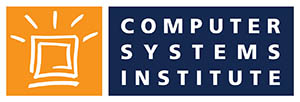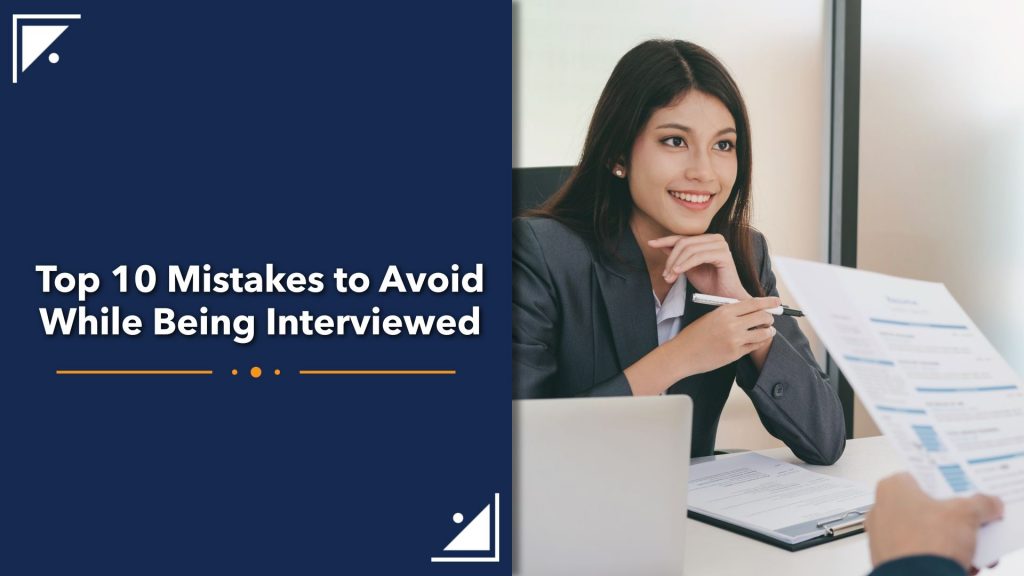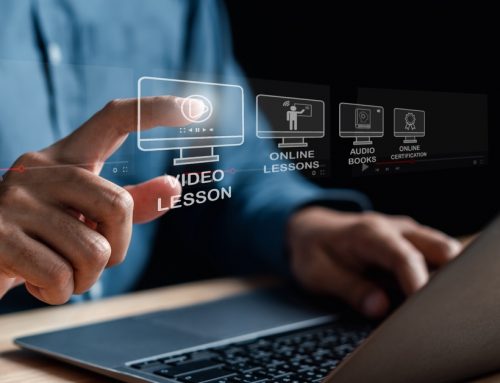One of the main reasons people further their education is to get the academic training they need to pursue a meaningful career. Once academic studies are complete, and students graduate, the next step is submitting resumes, landing interviews, and starting a career.
While job interviews are necessary, they can also bring on anxiety regardless of age, experience, or position. It can be an intimidating experience, and your nerves may end up getting the better of you. Your interview may not be one hundred percent perfect, but there are some big mistakes you should avoid to maximize your chances of landing the job.
- Mistake #1: Failing to Prepare
Too many candidates show up for job interviews without researching the company in question or the people conducting the interview. If you don’t know the individual who will interview you, you should at least know about the company, its business, philosophy, mission, and history. It would be best if you also were prepared to talk constructively about things you might do differently and what you bring to the table.
- Mistake #2: Not Dressing Appropriately
Failing to wear proper business attire or unwashed or wrinkled business attire is a one-way ticket to a poor first impression. There’s virtually no way to recover from that since so much of their prevailing attitude towards you will depend on that first impression. For example, if you appear shabby in your job interview, what would stop you from appearing that way in front of important clients?
- Mistake #3: Being Late
This behavior creates another poor first impression. Imagine applying for a job, getting an interview because the employer believes you might add value to the organization, only to turn up late. What does that say about you? It shows the employer that you don’t care enough about the position to be on time and/or that you are generally irresponsible when it comes to timekeeping. You should arrive at the interview between 5 and 10 minutes before the scheduled start time for an in-person interview.
- Mistake #4: Speaking Negatively About Previous Employers
Let’s say you are interviewing for a new job that will replace your current position where you are having a miserable time. It’s understandable and a big reason why people leave their jobs. What’s not good, however, is bad-mouthing your current employer to your prospective new one. In their minds, they are thinking, “If they are willing to bad-mouth their last employer to us, will they do the same if they leave here?”
Having said that, you should be prepared to give a reason why you want to leave. Focus on the positives of the position you are interviewing for. Be positive about previous experiences by focusing on what you have learned, what skills you have gained, and what you have to offer this new company.
- Mistake #5: Seeming Distracted
Turn off your phone for the interview, or at the very least, put it on silent (not even on vibrate). Stay focused on the interviewer, and show positive body language such as nodding to acknowledge you have heard and understood what the interviewer is saying and maintaining eye contact as you listen and talk.
- Mistake #6: Overcomplicating Answers
The phrase “less is more” when it comes to an interview is important to remember. It’s easy to think that the more you say, the better, right? You may feel a longer answer that sounds more detailed is better than a shorter, more straightforward answer. In fact, no. More concise and more to-the-point answers are always better. Answer each question with your main points, and then stop. Talking too much with overly complex answers won’t serve you well. If you find yourself talking too much, it is always ok to just stop talking. If the interviewer wants more detail, they will follow up.
- Mistake #7: Dodging Questions
You might think that evading a tricky question with a “creative” answer will impress the company, but the opposite is true. Never be afraid to answer questions directly. Some people dodge questions not because they don’t know the answer but because they don’t fully understand the question. If you need to ask a question to clarify what your interviewer has said, then do so. Being honest and bold enough to ask for clarification will impress them more than some slick question-dodging tactic.
- Mistake #8: Answering the “Weakness” Question with a Strength
One classic question that interviewers may ask you is about your biggest weakness. Some candidates think they are very clever when answering this question by saying things like: “I work too hard” or “I stay late at the office so much, I make no time for a social life.” You can easily think these answers are impressive, but they’re not. Actually, these answers come across as dishonest.
When asked about your weaknesses, don’t be afraid to tell them one. The difference, however, is that you should focus on the steps you actively took to fix the problem you had. When you can admit a fault and show how you fixed it, that’s impressive.
- Mistake #9: Failing to Ask Good Questions
Always take the opportunity to ask questions at the end of the interview. When they ask if you have questions, you should have some ready in your mind. Ask about aspects of the job that interest you, the office culture, how the company tries to boost team spirit, etc. Avoid questions about salary, benefits, and vacation days. Those can wait until you have an offer on the table.
- Mistake #10: Failing to Follow Up
After your interview, send a polite email or hand-written thank you card to the person who interviewed you. Thank them for the interview and opportunity, and add any other questions you might have forgotten to ask. If you don’t hear back within a week, don’t be afraid to follow up again with another email or a call. The follow-up is often seen as further evidence that you are genuinely interested in the job and willing to commit to that company.
Good Interview Skills Lead to Good Opportunities
Avoid these errors to the best of your ability, and you will at least generate a positive interview for all parties. This may lead to final success at this interview or give you more experience for future interviews.
At CSI, we’re ready to help our students prepare for interviews for externships while they are in a program with us or after they graduate.?Contact?us today to get more information.?





